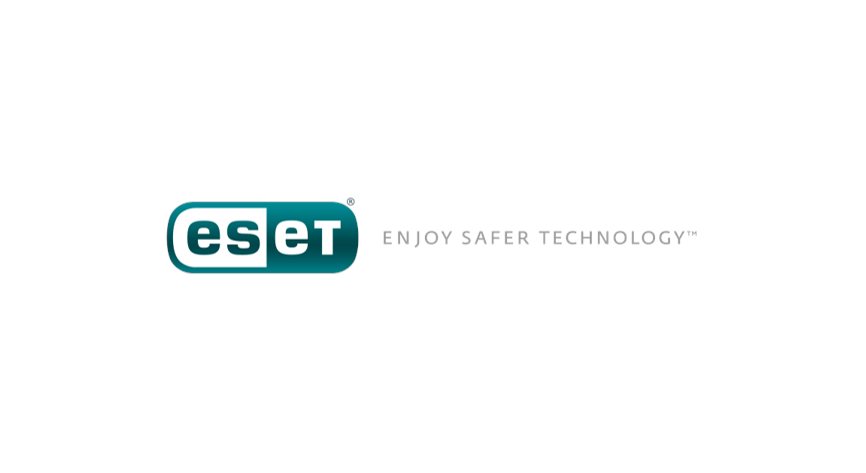‘Internet privacy’ will emerge as the top security concern of businesses and internet users according to the ‘Trends for 2014: The Challenge of Internet Privacy’ report published by ESET®, the global leader in proactive digital protection with a record of 10 years consecutive VB100 awards for its award-winning ESET NOD32® technology. Based on analysis of security news, trends, industry reports and technologies through 2013, the report reveals that internet privacy in the wake of the NSA revelations, cybercrime particularly relating to increasing malware on the Android mobile platform and the emergence of threats on non-traditional devices such as smart cars, game consoles and smart TVs will be the top three concerns set to dominate IT security discussions in 2014.

Commenting on the findings of the report, Pradeesh VS, General Manager, ESET Middle East said, “With the increase in their dependence on electronic devices, Middle East users are now more vulnerable than ever. This is mainly due to a lack of awareness which inhibits users’ ability to take appropriate security measures. Our annual research has for the last couple of years accurately predicted the top trends that have dominated the security domain. By making this report available to the general public, we aim not only to ensure that users in the Middle East become aware of these threats but are also informed and equipped to protect themselves.”
The report highlights three main security trends for 2014, outlined below.
1. Loss of privacy and mechanisms to improve protection on the Internet
ESET researchers found that majority of internet users have growing concerns about internet privacy, influenced largely by the revelations of the National Security Agency (NSA) scandal in the United States. This has subsequently resulted in an increased interest in protecting the information stored in the cloud as cloud uptake in the Middle East and Africa (MEA) is set to grow by 57% between 2012 and 2017.
The report also highlights a trend by service providers and prominent websites towards publicizing privacy policies and making people more aware of the topic. It can also be expected that in 2014, more countries in the region will show interest in regulating the Internet and users’ privacy. Increased awareness will drive the uptake of data protection through encryption- a method of making information unreadable unless deciphered by a key and better access control with two-factor authentication. ESET reports that two-factor authentication has already see adoption by organizations such as Facebook, Apple, Twitter, LinkedIn, Evernote, Google, and Microsoft in 2013 and expects this list to increase further in 2014.
2. Computer threats for Android OS
In its report, ESET cites the discovery of critical vulnerabilities and their later exploitation through malicious code as an example of the evolution of cybercrime affecting mobile technology. The research team predicts that the number of detections, families, versions, variants and of signatures to detect malicious codes for Android will continue to accelerate in 2014. The report identifies the two main types to be mobile botnets and sophisticated malware designed for 64-bit platforms. ESET also expects that ransomware, an attack technique previously exclusive to countries such as Russia and the United States, will be adopted by attackers to target a wider set of geographic locations.
3. Other Trends in Cybercrime
ESET predicts that as the variety of non-traditional devices such as smart cars, game consoles and smart TVs being connected to the internet grows in the coming year, they will introduce the possibility of new types of threat vectors. The fact that many of these devices use the Android operating system, only increases the likelihood of attacks as it makes it easier to develop malicious codes and other threats that target them. The report further goes on to elaborate extensively upon the threats likely to been seen on smart automobiles, smart TVs, smart homes, IP cameras, smart lighting systems, digital locks as well as wearable computing devices.
The comprehensive security report ‘Trends 2014 – The Challenge of Internet Privacy’ is available free of cost to users and is available on ESET’s news and information platform WeLiveSecurity.com.
About ESET
ESET®, the pioneer of proactive protection and the maker of the award-winning ESET NOD32® technology, is a global provider of security solutions for businesses and consumers. For over 26 years, the Company continues to lead the industry in proactive threat detection. By obtaining the 80th VB100 award in June 2013, ESET NOD32 technology holds the record number of Virus Bulletin “VB100” Awards, and has never missed a single “In-the-Wild” worm or virus since the inception of testing in 1998. In addition, ESET NOD32 technology holds the longest consecutive string of the VB100 awards of any AV vendor. ESET has also received a number of accolades from AV-Comparatives, AV-TEST and other testing organizations and reviews. ESET NOD32® Antivirus, ESET Smart Security®, ESET Cyber Security® (solution for Mac), ESET® Mobile Security and IT Security for Business are trusted by millions of global users and are among the most recommended security solutions in the world.
The Company has global headquarters in Bratislava (Slovakia), with regional distribution centers in San Diego (U.S.), Buenos Aires (Argentina), and Singapore. ESET has malware research centers in Bratislava, San Diego, Buenos Aires, Singapore, Prague, Košice (Slovakia), Krakow (Poland), Montreal (Canada), Moscow (Russia). ESET Middle East has its regional office in Dubai Internet City and manages an extensive partner network in 11 countries: United Arab Emirates, Saudi Arabia, Kuwait, Qatar, Oman, Bahrain, Yemen, Lebanon, Jordan Egypt and Libya. More information is available via www.eset.com/me.





















